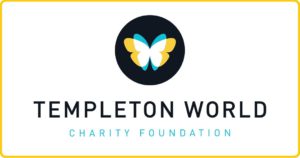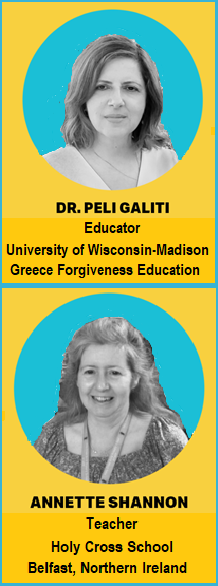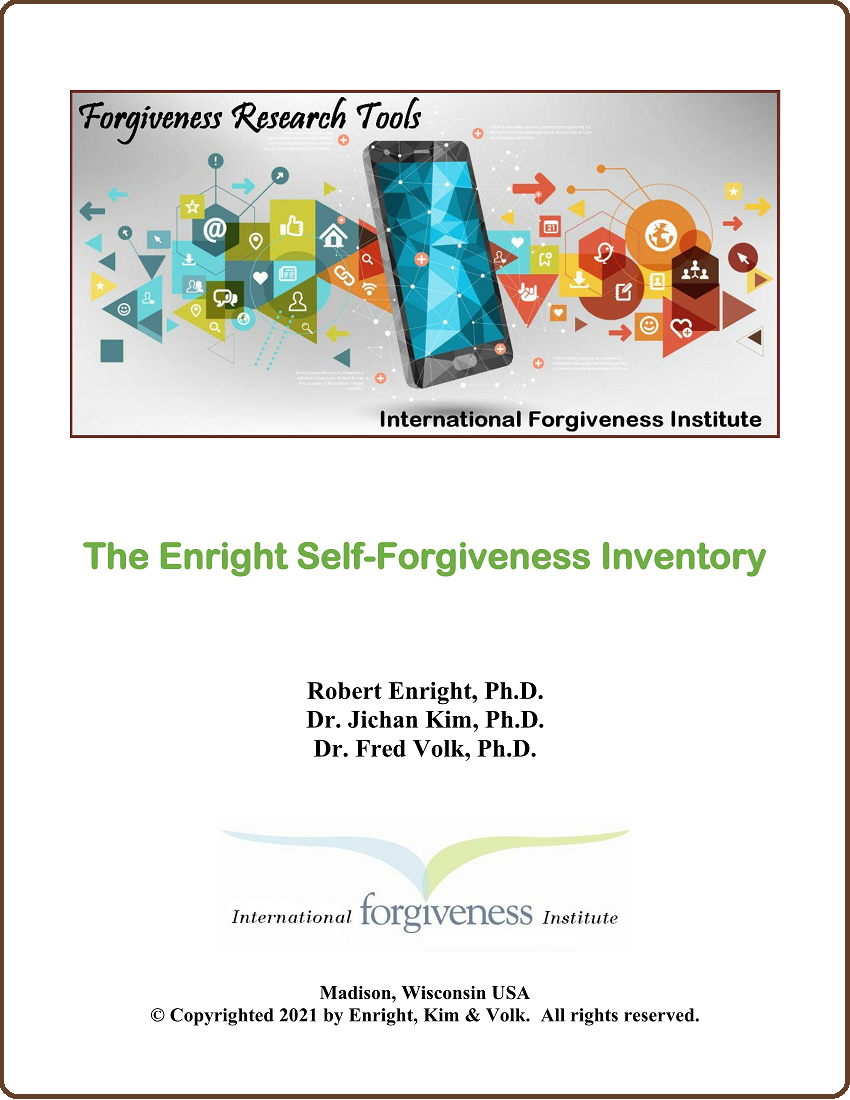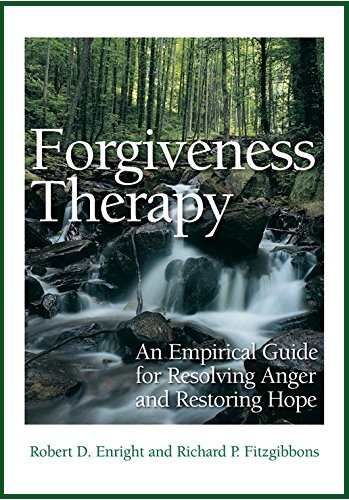Tagged: “Children”
World Education Week Features Dr. Enright’s Forgiveness Education Initiatives
World Education Week 2021, an annual celebration of practical educational innovations that kicks off this week, will focus on Dr. Robert Enright’s Forgiveness Education initiatives—particularly those in Greece, Northern Ireland, and Liberia (West Africa).
The event, sponsored by the Templeton World Charity Foundation, provides a platform for schools and education organizations to share how they have developed their expertise with the express purpose of inspiring other schools and organizations to understand the journey to excellence. More than 100 schools and organizations around the world will be sharing their unique expertise and success stories with a global audience.
 “The best thing we can do to build a better future is empower our students with the social and emotional tools they will need to live healthy, productive, thriving lives,” according to Andrew Serazin, President of Templeton World Charity Foundation. “Forgiveness is one of those critical tools.”
“The best thing we can do to build a better future is empower our students with the social and emotional tools they will need to live healthy, productive, thriving lives,” according to Andrew Serazin, President of Templeton World Charity Foundation. “Forgiveness is one of those critical tools.”
As outlined on the World Education Week website, Forgiveness Forum, a panel of experienced forgiveness teachers and educational advocates from around the world will share their unique experiences building forgiveness into curriculums and discuss its impact on classroom dynamics, on student attainment outcomes, and on teacher well-being.
Two members of that three-person panel of experts have a combined 20 years of experience either teaching students or educating teachers about Dr. Enright’s Forgiveness Education Program:
- Dr. Peli Galiti,
 Ph.D., M.Ed., has been conducting training workshops for Greek teachers for the past 9 years and has trained more than 600 teachers to use Forgiveness Education. The Program is now being taught to more than 6,000 students as part of the Greek Forgiveness Education Program that Dr. Galiti directs.
Ph.D., M.Ed., has been conducting training workshops for Greek teachers for the past 9 years and has trained more than 600 teachers to use Forgiveness Education. The Program is now being taught to more than 6,000 students as part of the Greek Forgiveness Education Program that Dr. Galiti directs.
. - Annette Shannon, Learning Support Teacher at Holy Cross Girls’ School in Belfast, Northern Ireland, has been teaching and coordinating the school’s Forgiveness Education Program for the past 11 years.
Another prominent participant in World Education Week, Bishop Kortu Brown, Chairman/CEO of Church Aid Inc., has been National Coordinator of the Liberia Forgiveness Education Program since it was established by Dr. Enright nearly 10 years ago. Bishop Brown also appears in a 30-second promotional video about the week’s activities.
The widely acclaimed Forgiveness Education Program, developed by Dr. Enright along with collaborating curriculum experts and experienced teachers, is administered by the International Forgiveness Institute. Using children’s story books and Social Emotional Learning (SEL) techniques, the Program teaches students about the five moral qualities most important to forgiving another person–inherent worth, moral love, kindness, respect and generosity. The Program is now being used in more than 30 countries around the world.
Learn more and register for World Education Week activities (all sessions are free) on the Forgiveness Forum website.
I grew up in a household in which my parents got angry quickly and expressed their anger often. I am about to get married. What cautions do you see for me?
I would recommend that you have a discussion with your future marriage partner about the kinds of patterns that occurred in each of your families of origin. Try to see the woundedness that was expressed in each family. This is because both of you might reproduce those patterns of woundedness with each other in the years to come. Your being aware of the wounds in your parents (and siblings), as well as your own woundedness from these, may help both of you from inadvertently passing those wounds onto each other. Each of you forgiving family members for giving you wounds should help in this regard. I wish you the best in your upcoming marriage.
Forgiveness Research Tools Flying Out the Door and Around the World
When The Christian Science Monitor called him “the father of forgiveness research” nearly 20 years ago (Dec. 19, 2002), Dr. Robert Enright, a University of Wisconsin-Madison educational psychology professor, had just completed what the news organization called “the first study ever to show a cause-and-effect finding regarding physical health. . . and forgiveness.”
Today, as Dr. Enright nudges close to 37 years of forgiveness study and interventions, his research tools and techniques have become the preferred instruments of social scientists and researchers around the world. To stimulate even further growth in the burgeoning field, the forgiveness pioneer is giving his research tools away at no cost and with no strings attached.
On April 20 of this year, Dr. Enright announced that the non-profit educational organization he founded–the International Forgiveness Institute (IFI)–would provide his highly regarded scientific research tools absolutely free to any forgiveness researcher who requested them. In just the four months since then, the IFI has received and fulfilled orders for 252 copies of his individual tool documents from researchers in 21 foreign countries and 27 US states.
The free research tools available from the IFI and the number of copies distributed since April include:
- The Enright Self-Forgiveness Inventory (ESFI) – 76 Requests
This measure is based on the conceptualization of forgiveness as a moral virtue. The ESFI is a 30-item scale featuring six subscales with five items each. Five additional items at the end of the scale allow for measurement of Pseudo Self-Forgiveness (PSF). Although several competing self-forgiveness measures exist, Dr. Enright’s is the only one that captures the idea that self-forgiveness is a moral virtue that includes behavior toward the self.
- The Enright Forgiveness Inventory-30 (EFI-30) – 85 Requests
This tool is a shorter version of the Enright Forgiveness Inventory for Adults that has become the interpersonal forgiveness measure of choice for research professionals in the U.S. and abroad since its development in 1995. The EFI-30 reduces the number of items from 60 to 30 for the purpose of a more practical assessment of this construct. Data from the United States were used in the creation of the new measure and applied to seven nations: Austria, Brazil, Israel, Korea, Norway, Pakistan, and Taiwan to develop its psychometric validation.
- The Enright Group Forgiveness Inventory (EGFI) – 44 Requests
The EGFI has 56 items across seven subscales with each subscale having eight items. Those subscales measure a group’s motivation and values regarding forgiveness, peace, and friendliness toward the other group. The instrument is a valuable tool that could enhance peace efforts in the world. The EGFI was validated and published earlier this year by Dr. Enright and a team of 16 international researchers who collected data from 595 study participants in three different geographic and cultural settings of the world—China and Taiwan, Slovenia, and the US.
- The Enright Forgiveness Inventory for Children (EFI-C) – 47 Requests
The EFI-C is an objective measure of the degree to which a child forgives another who has hurt him or her deeply and unfairly. It is a 30-item scale similar to the 60-item adult version and is presented orally to very young children and in writing to those who can read well. Thanks to a researcher in Pakistan, the EFI-C is now available in the Urdu language—the native language of an estimated 230 million people, primarily in South Asia.
“Making these tools available to researchers at no cost is one way to grow the repository of forgiveness knowledge,” Dr. Enright explained. “This area of moral development has produced significant advancements in the areas of education, medical treatment, and therapy, so why not encourage others to help expand that information base?”
“There’s no getting around it – forgiveness is good for you and holding a grudge is not.”
-The Christian Science Monitor
- Learn more and order Dr. Enright’s free tools on the Forgiveness Research Tools page.
- Read how the EFI-30 was tested and validated in 8 countries around the world.
- Read the entire forgiveness article in The Christian Science Monitor.
Keeping Anne Gallagher’s Memory and Work Alive
Robert
In Memoriam: Anne Gallagher, Seeds of Hope
It is with deep sadness that we announce the passing of a true patriot for peace, Anne Gallagher of Dublin, Ireland (August 7, 2013).
Anne started the peace organization, Seeds of Hope, in Ireland as a way to counter the after-effects of The Troubles. Even though the peace accord was signed in 1998, hearts were still embittered by the struggles that began to erupt in early 1972 with Bloody Sunday. Some of Anne’s friends and relations took up combat and were part of paramilitary organizations in Ireland and Northern Ireland. Anne, in contrast, sought dialogue as a way to peace.
Anne was instrumental in the International Forgiveness Institute’s transition to forgiveness education in Belfast. She tirelessly set up meetings with us at various schools such as Ligoniel, St. Vincent de Paul, and Mercy Primary School. Because of Anne’s endorsement of us, doors flew open and within about one month of trying, we were accepted into schools within the inter-face areas of the city (where contentious groups live segregated lives but in close proximity to one another)..
I recall vividly in 2003 sitting with three ex-combatants who wanted to know more about forgiveness education. They were unsure if it was a good idea. Anne set up the meeting. You see, we needed their permission to go into a particular school because some of the ex-combatants informally controlled their neighborhoods. One of them, battle-tested, said to me, “My son is in that school. Forgiveness will make him weak.” I swallowed hard and asked, “Do you want your son to grow up and live as you have?” He bowed his head and with love in his heart for his son said, “No.” It was then that he gave us permission to enter the school.
Anne was always close to danger like this. She did not care, even though some of her brothers were scared for her. Yet, she had a spark in her eyes and a conviction deep within that peace must be sought even if it meant putting oneself on the line at times.
Anne Gallagher represents peace in Ireland. We at the IFI will do our best to keep alive her vision for Seeds of Hope in each human heart. Peace be with you now, Anne.
Robert
Author’s Note: Read about the Northern Ireland Troubles, about Bloody Sunday, and about learning to forgive in the “Seeds of Hope Ex-Prisoners Think Tank Report” co-authored by Anne Gallagher (whose four brothers became involved in the Northern Ireland conflict and served long prison sentences, one being shot dead upon his release.)
— Anne Gallagher photo by Brian Moody
Forgiveness Interventions Help Depressed Adolescents Cope and Thrive
Ample research has shown that depression is a significant and growing problem for today’s adolescents. Depression can impair a teenager’s cognitive functioning (i.e., thinking, reasoning, etc.), relationships with parents and peers, academic performance, and for cases of severe depression may even result in suicide attempts. Moreover, adolescent depression is also associated with poor outcomes in adulthood such as low-income levels, low educational aspirations, and high substance use.
Now, two international education and forgiveness specialists believe they may have uncovered one of the keys to reducing adolescent depression and major depressive disorder (MDD). According to the researchers, their first-of-its-kind study has shown that promoting social skills such as responsibility and self-control could be “particularly salient for the prevention of adolescent depression.”
The new study, A Longitudinal Analysis of Social Skills and Adolescent Depression: A Multivariate Latent Growth Approach, was published in the current issue of the International Journal of Psychological Research (the official publication of the Faculty of Psychology at San Buenaventura University in Medellin, Colombia.). The study authors included Dr. Zhuojun Yao, an educational psychologist and lecturer at Soochow (Suzhou) University in Suzhou, China, and Dr. Robert Enright, of our International Forgiveness Institute.
BACKGROUND: Adolescence is a period of increased vulnerability to depression because of complex changes in biology, cognition, and social domains. According to the 2019 National Survey on Drug Use and Health (NSDUH), 3.5 million adolescents aged 12 to 17 in the United States (14.4% of the total) had at least one Major Depressive Episode (MDE), and 70% of these adolescents had an MDE with severe impairment in 2018.
Most clinical depression among children starts in middle adolescence (ages 15-18) and is much higher for those in that age group than for those in early adolescence (ages 13-15). Although there are substantial empirical research studies demonstrating the association between social skills and adolescent depression, the authors of this study could not locate a single scientific work investigating how the change in social skills influences the change in depression from early to middle adolescence.
THE STUDY: To address this gap in fundamental knowledge, the researchers in this study questioned how changes in social skills (cooperation, assertion, responsibility, and self-control) influence changes in depression from early to middle adolescence. Using internationally respected measurement tools, the authors measured both social skills and depression in 1,064 participants (half boys, half girls). Those participants were drawn from a separate longevity study by the National Institute of Child Health and Human Development Study of Early Child Care and Youth Development (NICHD SECCYD) that ran from 1991 through 2008.
STUDY RESULTS: According to the study authors, adolescents who had more increase in responsibility and self-control from 5th grade to 9th grade tended to experience a slower increase in depression; while adolescents who had more reduction in cooperation and assertion from 5th grade to 9th grade tended to experience a faster increase in depression. Overall, the results suggest that responsibility in early adolescence may decrease adolescent depression by protecting adolescents from risk-taking and problematic behaviors in middle adolescence.
“When used in association with other therapeutic modalities. . .the psychotherapeutic
use of forgiveness can resolve the anger associated with depressive disorders.”
Dr. Robert Enright
IMPLICATIONS FOR FORGIVENESS: Interventions to reduce adolescent depression are becoming more important with each passing day because, as outlined above, adolescent depression also is associated with poor outcomes in adulthood. A 2009 study revealed that at least 27 million Americans take antidepressants, nearly double the number (13.3 million) who did so in the mid-1990s (Olfson & Marcus, 2009). Less understood is the fact that approximately 80% of adult mental disorders begin during childhood and adolescence (Kim-Cohen et al., 2003) and typically include an intense emotional state of anger.
 “Anger begins in early childhood and later extends to relationships with significant others, particularly those one wants to trust,” Dr. Enright writes in Forgiveness Therapy, the widely-heralded forgiveness intervention manual he authored with psychiatrist Dr. Richard Fitzgibbons. “Anger from childhood hurts and disappointments with parents and others can be unresolved and later misdirected unconsciously at others. [page 108]
“Anger begins in early childhood and later extends to relationships with significant others, particularly those one wants to trust,” Dr. Enright writes in Forgiveness Therapy, the widely-heralded forgiveness intervention manual he authored with psychiatrist Dr. Richard Fitzgibbons. “Anger from childhood hurts and disappointments with parents and others can be unresolved and later misdirected unconsciously at others. [page 108]
“Once anger develops, three options are available for addressing this powerful and complex emotion: denial, expression (active or passive-aggressive), and forgiveness. If the anger is resolved through a forgiveness process, it can facilitate the healing of the associated sadness, depression and the tendency to ruminate over past hurts.” [page 108]
According to Dr. Enright, “This study provides yet another compelling reason why we need Forgiveness Education in our schools NOW.”
This study on adolescent depression is just one of the many research projects undertaken by Drs. Zhuojun Yao and Robert Enright. Others include:
- The influence of moral stories on kindergarteners’ sharing behavior
- The role of consequences of moral action in maximizing moral elevation
- Belief in altruistic human nature and prosocial behavior: a serial mediation analysis
- The Link Between Social Interaction with Adults and Adolescent Conflict Coping Strategy in School Context



